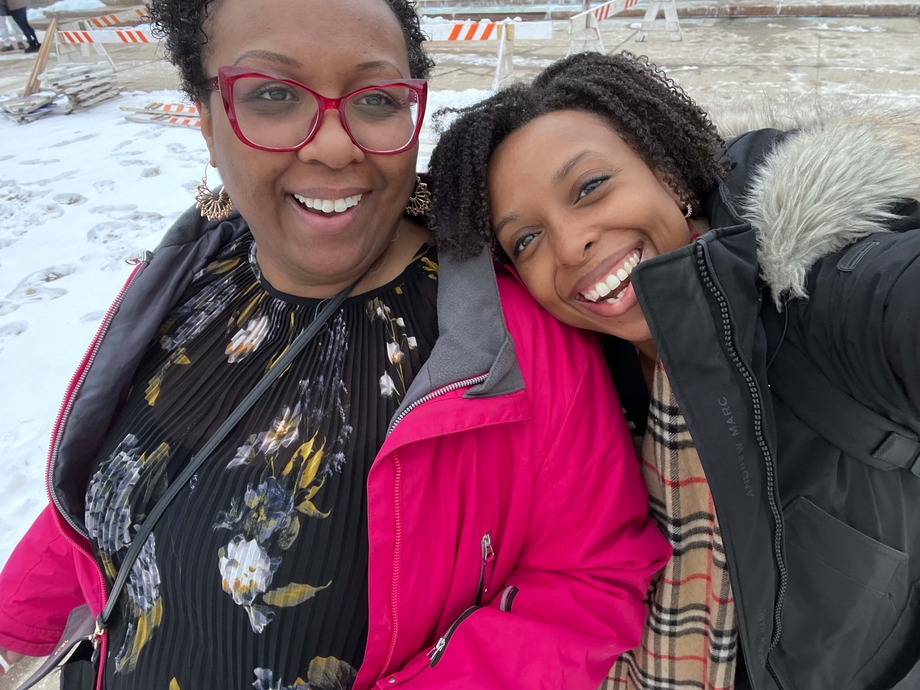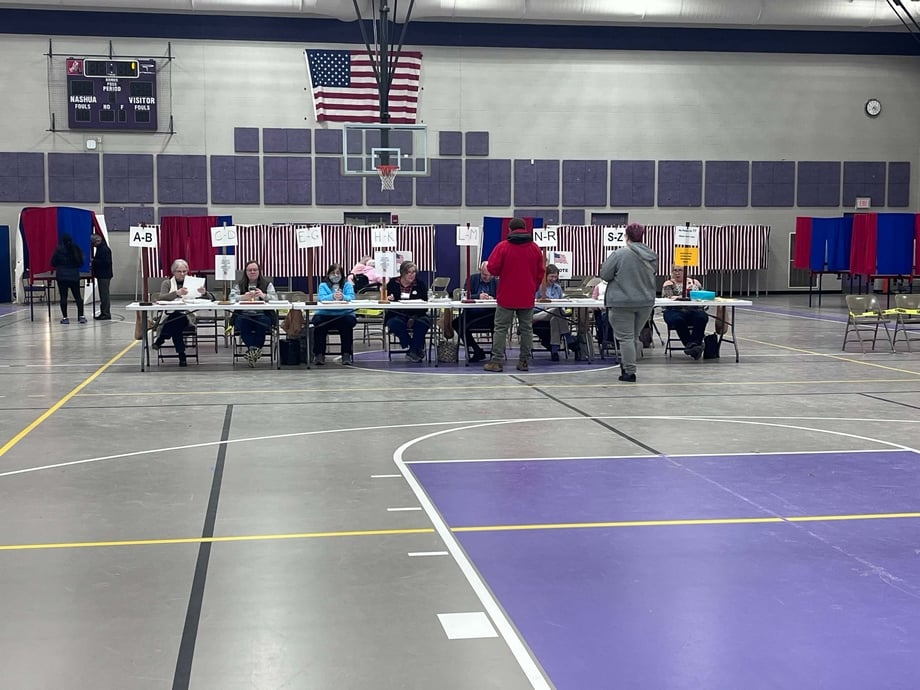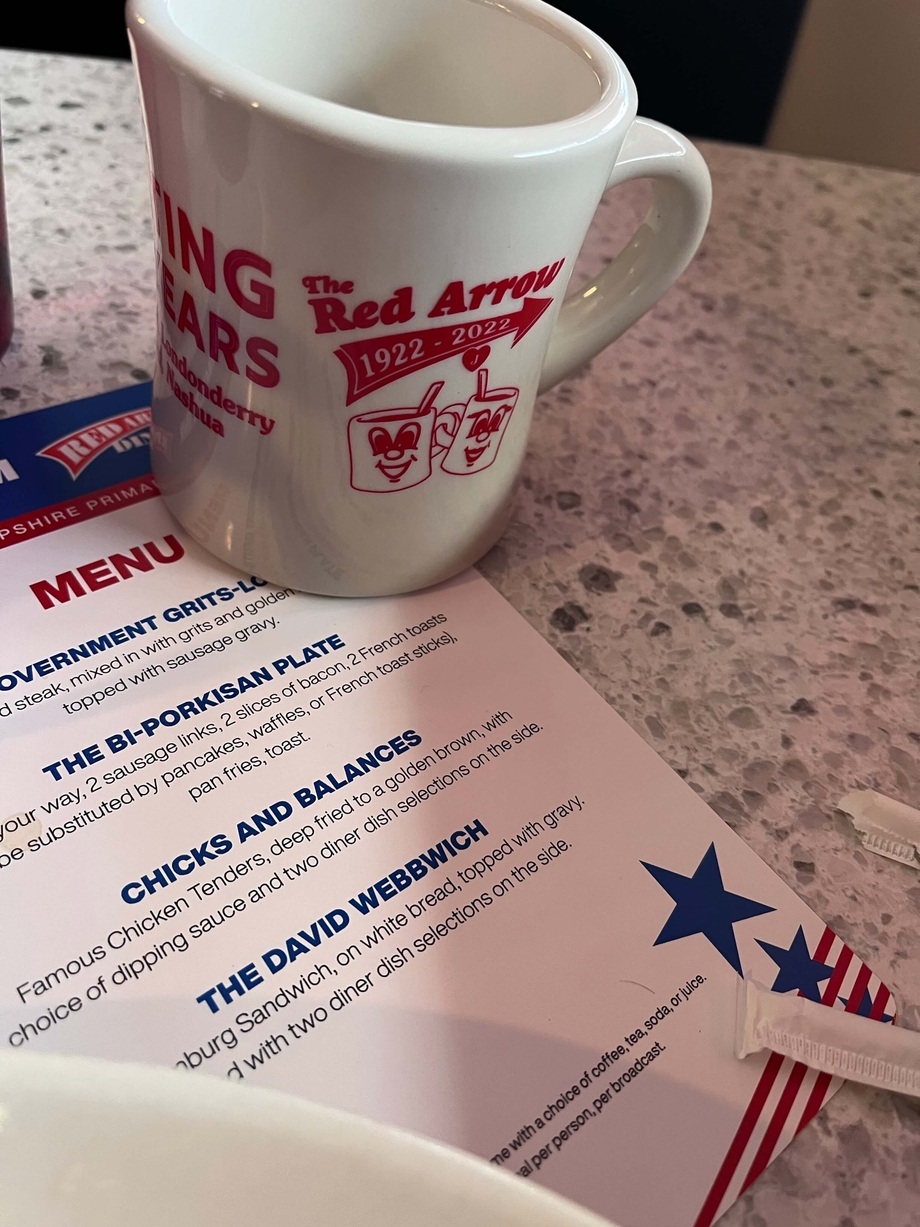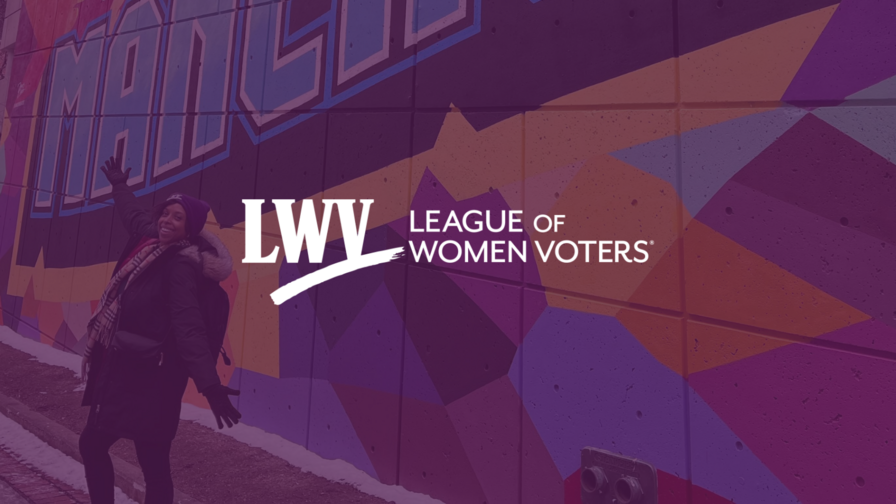Day in the Life: Attending the New Hampshire Primaries
The highly anticipated New Hampshire primary almost always received considerable media attention. During the primary, presidential candidates compete to earn enough delegates to run for president.
This year’s primary was an interesting one, with 24 Republican candidates and 21 Democratic candidates, the latter of which included a write-in for President Biden. The League of Women Voters of the United States and our partners at the National Task Force on Election Crises attended the Granite State’s primaries for the first time to ensure a successful process through some on-ground election observing.
Get involved in elections in your community! Join one of the 700+ state and local Leagues.
Now, this isn’t my first time visiting New Hampshire for the primary. For many years, I worked as a producer for C-SPAN, so I know how busy the state can get during this time of year. Media and campaign staff flood the streets, and popular restaurants like Puritan Backroom and the Red Arrow Diner are popular stops for presidential candidates. So, when I received the offer to visit New Hampshire again, I was excited to return to my old stomping grounds.
Many people might not know, but the League of Women Voters has participated in election observing for a while now. Since 2010, the League has deepened and expanded its commitment to ensure that elections run smoothly for voters on Election Day. Election observing across our 750 state and local Leagues presents a unique opportunity to witness the democratic process firsthand and ensure that all eligible voters can exercise their right to vote. Election observing also allows us to gather information about what’s working and what’s not so the process can be improved for future elections.

The author with Chief Counsel Celina Stewart
Joined by LWVUS Chief Counsel Celina Stewart, I took off from DCA for a short flight into Manchester. There was some snow on the ground, but it was mild for January in New Hampshire. After a short cab ride downtown, Celina and I met with the National Elections Crisis Taskforce members who planned our trip. After strategizing over a rather large basket of chicken tenders from Puritan Backroom, we were ready to hit the ground running on primary Day.
On Tuesday, Celina and I headed to Memorial High School in Manchester (the other half of our group traveled to Nashua) to meet with election moderator Jim Gaudet. Jim has been at the polling location since it opened, ensuring that the voting process runs smoothly. He tells us there has been a steady stream of people coming in, and he expects it to get busier around lunch and after work hours.
A Day in the Life of a Poll Worker
Jim explained how the New Hampshire primary worked this year with President Biden being a write-in. We learned that ballots that contain a write-in candidate must be counted by hand and cannot simply be scanned by the tabulation machines. This increases the time it takes to count votes. Jim also explained how, in New Hampshire, undeclared voters can vote in the state’s primary, but they must choose either a Democratic or Republican ballot. If voters wish to return to an undeclared status, they can fill out a card before leaving the polling place.

After spending time at the Memorial High School polling location, we decided to refuel for lunch — well, actually breakfast — at the Red Arrow Diner. The Red Arrow Diner is a Manchester institution, so it was necessary to visit it. They had special primary 2024 breakfast specials and a radio show being broadcast during our stop! While there, we saw former presidential candidate Vivek Ramaswamy being interviewed by Sirius XM radio host David Webb.
Following breakfast at Red Arrow Diner, we headed to the nearby Doubletree hotel, where several news organizations set up their workstations in between covering the last-minute events with candidates. The media space was pretty spacious and was dedicated to media outlets ranging from online, print, and television. Multiple television outlets used the location in front of the hotel as a backdrop to their reporting in New Hampshire.
For our final stop of the evening, we traveled north to Nashua to observe the polling location at Nashua High School. The location had a steady stream of voters arriving before polls closed at 8pm. It even had a separate area dedicated to election observers. Shortly after the polls officially closed at 8pm, election workers could quickly share the election report of how many ballots were cast and for which candidate (except for the write-in candidate).

Despite a robocall impersonating President Biden that went out two days before the primary — which the League has now filed a lawsuit around and which the media accurately reported as voter misinformation — the New Hampshire primaries went relatively smoothly. The primary election in New Hampshire was a testament to the dedicated election workers who tirelessly work and volunteer their time. It was heartening to see, in person, the tremendous efforts of organizations, individual voters, and election administrators to keep our democracy running.
Election observation is critical to our electoral process. That’s why the League of Women Voters encourages state and local Leagues to participate in and organize election observing programs during primary and general elections.
Join us and learn how we fight for democracy by joining your local League. You can also learn more about becoming a poll worker through our partners at Power the Polls!
The Latest from the League
Caucuses "are meetings run by political parties that are held at the county, district, or precinct level." In the months before a presidential election, several states hold caucuses where candidates vie for party support. Caucus participants then vote for the candidates they support; the number of votes each candidate receives determines how many party “delegates” will be sent to support that candidate at the party’s convention.
When you vote for the President of the United States, you are not voting directly for a candidate. Instead, your vote — and the votes of everyone else in your state — directs the votes of the people who vote directly for President: presidential electors, otherwise known as members of the Electoral College.
This blog, and those that will follow, will explain how the Electoral College works, the history of the Electoral College — including its racist origins — and why it must be abolished.
If we want to create a more inclusive democracy that represents the diverse needs of its people, we must empower young voters.
Learn why young voters are so important and how you can support them!
Sign Up For Email
Keep up with the League. Receive emails to your inbox!
Donate to support our work
to empower voters and defend democracy.





